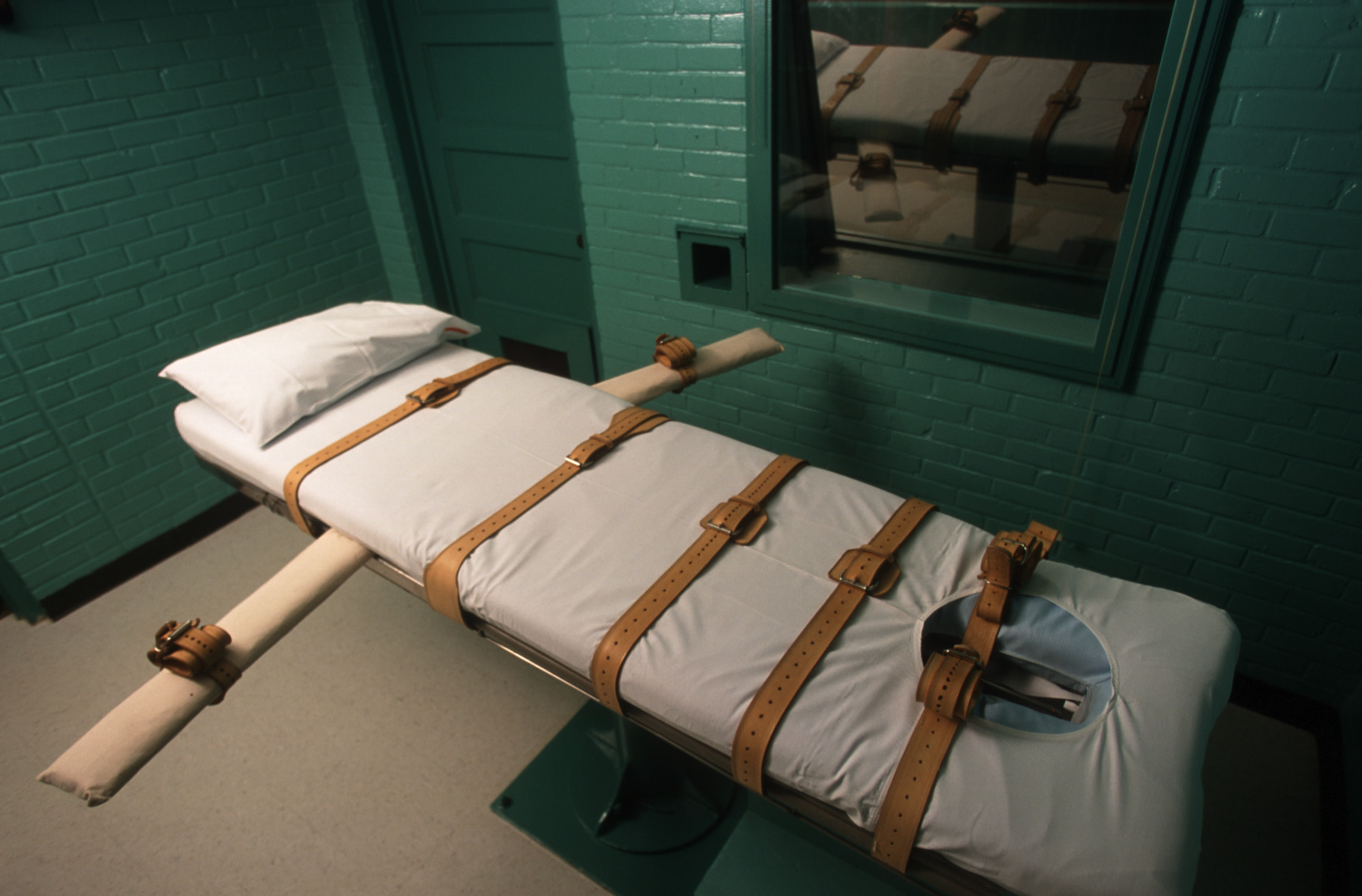A Texas man who had raised questions about evidence used to persuade a jury to sentence him to death for killing an elderly woman decades ago was executed on Tuesday night.
Jedidiah Murphy, 48, was pronounced dead after a lethal injection at the state penitentiary in Huntsville for the October 2000 fatal shooting of Bertie Lee Cunningham in Garland, a suburb of Dallas. Cunningham, 80, was killed during a carjacking.
“To the family of the victim, I want to say I sincerely apologize for all I did,” Murphy said, according to a transcript of his final statement that was provided to Newsweek by the Texas Department of Criminal Justice. “I hope this brings you closure.”
Murphy then began a lengthy recitation of Psalm 34, which ended with him saying: “The Lord redeems the soul of his servants, and none of those who trust in him shall be condemned.”
After telling the warden he was ready, Murphy turned his head toward a friend watching through a window a few feet from him, The Associated Press reported.
He told her: “God bless all of y’all. It’s OK. Tell my babies I love them.”
He then shouted out: “Bella is my wife!”
Murphy took two barely audible breaths as the lethal dose of pentobarbital took effect and appeared to go to sleep, according to the AP. He was pronounced dead at 10:15 p.m.
Murphy was put to death hours after the U.S. Supreme Court overturned an order that had stopped the execution from taking place. The court also turned down another request to stay the execution over claims the lethal drugs were exposed to extreme heat and smoke in a recent fire at the Huntsville prison unit where they were stored, making them unsafe and leaving Murphy at risk of pain and suffering.
The 5th U.S. Circuit Court of Appeals on Monday had upheld a federal judge’s order delaying the execution after Murphy’s lawyers filed a lawsuit seeking DNA testing of evidence presented at his 2001 trial. In their ruling, the panel said that another case before the court brought by a different Texas death row inmate raised similar issues and it was prudent to wait for a ruling in that case.
The Texas attorney general’s office appealed, with the Supreme Court ruling in the state’s favor.
Murphy’s attorneys had raised questions about the evidence used by prosecutors during the penalty phase of his trial, according to the AP.
Murphy admitted that he killed Cunningham but long denied he committed the robberies or kidnapping that his attorneys argued were the strongest evidence prosecutors had to show Murphy would be a future danger, a legal finding needed to impose a death sentence in Texas. They said the evidence linking Murphy to the crimes was problematic, including a questionable identification of Murphy by one of the victims, and argued that DNA testing would help show he did not commit the crimes.
Prosecutors argued against the DNA testing, saying state law only allows for post-conviction testing of evidence related to guilt or innocence and not to a defendant’s sentence.
Murphy was the sixth inmate put to death in Texas in 2023. Three more are scheduled in the state this year.
Murphy’s execution took place on World Day Against the Death Penalty, an annual day of advocacy by death penalty opponents.

